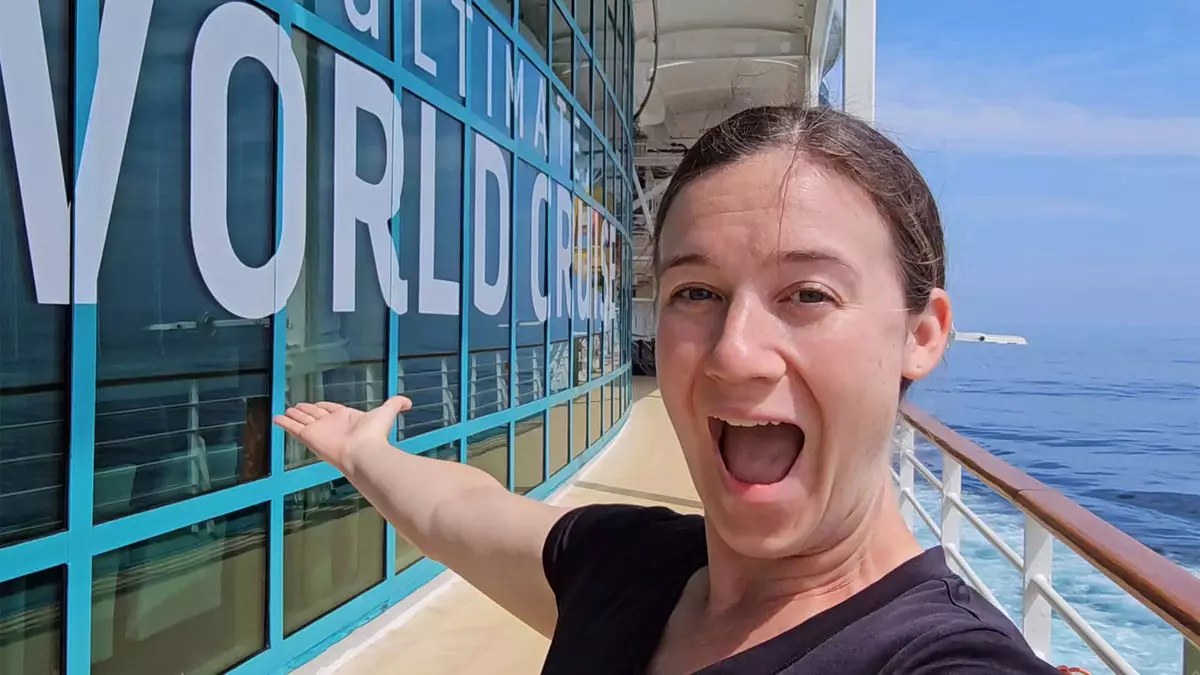The world of cruising underwent a significant shift in late 2021 when Jenny Hunnicutt and her husband decided to embark on Royal Caribbean International’s first world cruise. This unprecedented 274-day journey around the globe quickly captured the attention of social media users, leading to a surge in popularity both online and offline. The impact of social media on the success of this epic voyage cannot be underestimated, sparking a discussion on the potential influence of platforms like TikTok on the future of world cruises.
The Ultimate World Cruise introduced by Royal Caribbean in 2021 presented an unparalleled experience for travelers seeking an extended adventure at sea. At a price point of $54,000 per person, the voyage promised nine months of exploration and discovery, attracting a diverse range of passengers from around the world. Social media played a pivotal role in elevating the visibility of this cruise, with TikTok users leveraging the #ultimateworldcruise hashtag to share captivating stories and experiences from onboard the ship.
Jenny Hunnicutt, a prominent social media influencer, emerged as a key figure in promoting the Ultimate World Cruise through her TikTok videos under the handle @drjennytravels. With over 200 posts documenting her journey, she provided viewers with a firsthand glimpse into the daily life onboard the Serenade of the Seas. Hunnicutt’s engaging content and relatable storytelling contributed to the viral spread of the cruise across various online platforms, fueling curiosity and excitement among potential travelers.
While the internet frenzy surrounding the Ultimate World Cruise undoubtedly generated buzz and increased awareness, questions remain about the long-term impact on world cruise bookings. Industry experts like Mike Matthews express skepticism about the direct correlation between social media popularity and cruise sales, citing differences in demographic profiles and spending behaviors. As cruise lines consider expanding their offerings to include more extended voyages, it becomes crucial to assess the evolving landscape of digital marketing and its influence on consumer preferences.
As Royal Caribbean contemplates the possibility of launching a second long sailing in late 2026, advisors and travel agents must adapt to changing client expectations and interests. The success of the Ultimate World Cruise underscores the growing demand for unique and immersive travel experiences, driven by a desire for authenticity and exploration. While social media continues to play a significant role in shaping travel trends and influencing consumer decisions, its impact on the luxury cruise market remains subject to further analysis and evaluation.
The intersection of social media and the cruise industry has opened up new avenues for engagement and storytelling, showcasing the transformative power of digital platforms in shaping travel narratives. The journey of the Ultimate World Cruise serves as a compelling case study in harnessing the online community to create global awareness and drive meaningful conversations about the future of world cruises. By embracing innovation and embracing the evolving role of social media in travel marketing, cruise lines can position themselves for success in an increasingly connected and dynamic marketplace.

